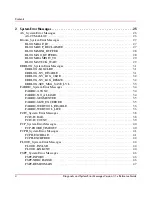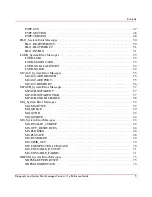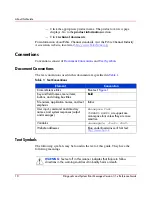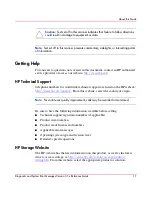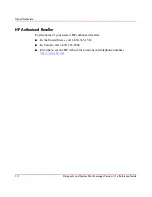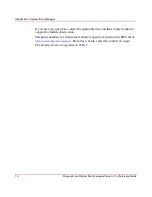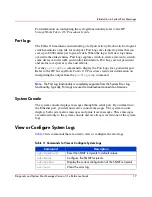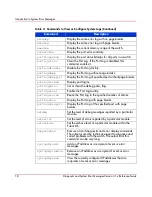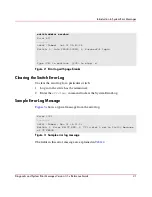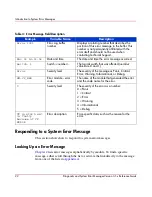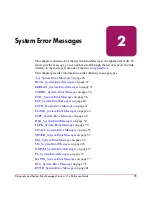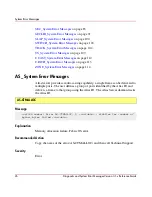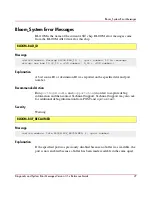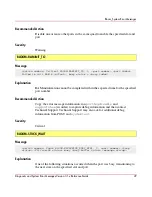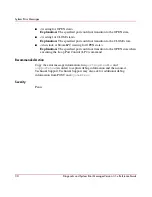
Introduction to System Error Messages
16
Diagnostic and System Error Messages Version 3.1.x Reference Guide
System Error Log
The Fabric OS maintains an internal System Error Log of all diagnostic and
system error messages. The internal log buffers are limited in size; when the
internal buffers are full, new messages overwrite old messages.
The following are features of the System Error Log:
■
Each switch has a System Error Log. Messages are lost over power cycles and
reboots.
■
The System Error Log can save a maximum of 1536 messages in RAM. That
is a total of 256 messages for each error message level (panic, error, warning,
informational, and debug).
■
The System Error Log is implemented as a circular buffer. When more than
the maximum number of entries are added to the log file, old entries are
overwritten by new ones.
■
The
errdump
and
errorshow
commands display all the system error
messages.
Syslogd Daemon
Syslogd is a process that runs on UNIX or Linux systems that reads and logs
messages to the system console, log files, other machines, and users specified by
its configuration file. Refer to the manual pages and related documentation for
your particular UNIX host system for more information on the syslogd process
and its capabilities.
The Fabric OS can be configured to use a UNIX-style syslog daemon (syslogd)
process to read system events and error messages and forward these messages to
users and/or write the events to log files on a remote UNIX host system.
The SAN switch can be configured to send error log messages to a UNIX host
system that supports syslogd. This host system can be configured to receive error
and event messages from the switch and store them in files on the computer hard
drive. This enables the storage of switch error log messages on a host system and
overcomes the size limitations of the internal log buffers on the SAN switch.
The host system can be running UNIX, Linux, or any other operating system, as
long as it supports standard syslogd functionality. The Core switch or 2 Gb SAN
switch do not assume any particular operating system to be running on the host
system. The only requirement is that the host system must support standard
syslogd to receive error log messages from the StorageWorks Core switch or
StorageWorks 2 Gb SAN switch.



